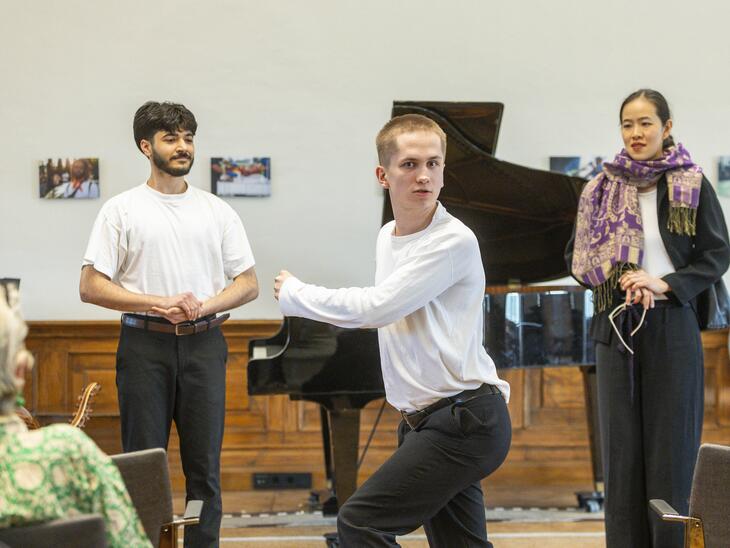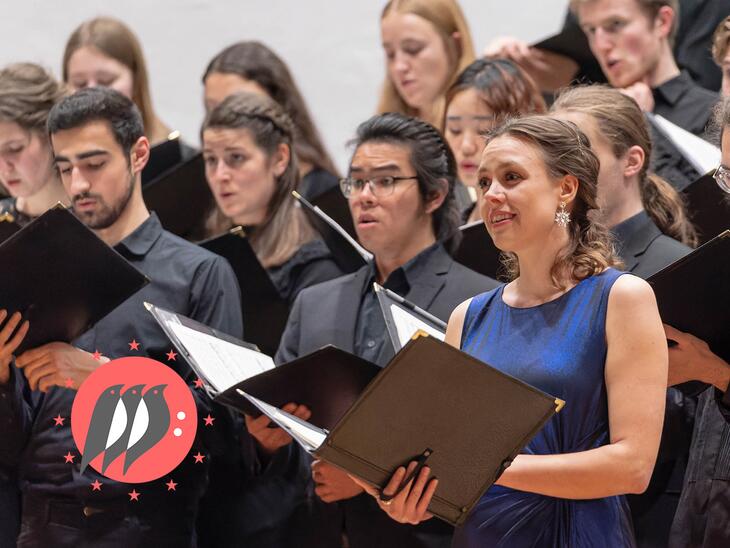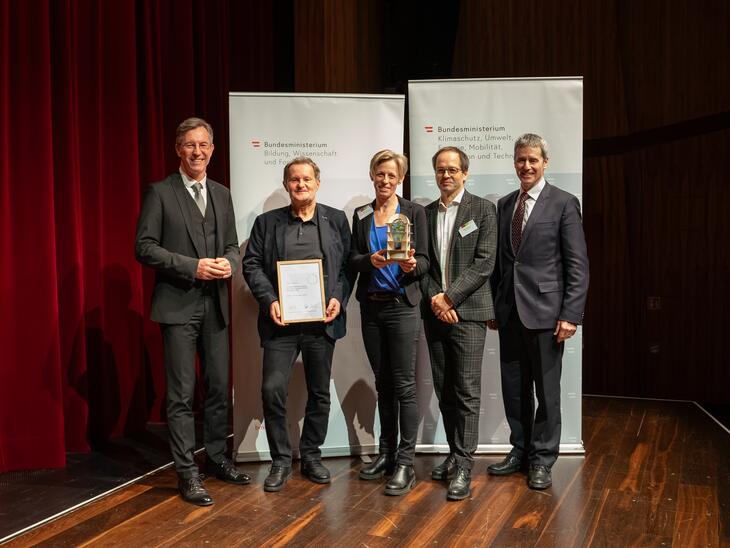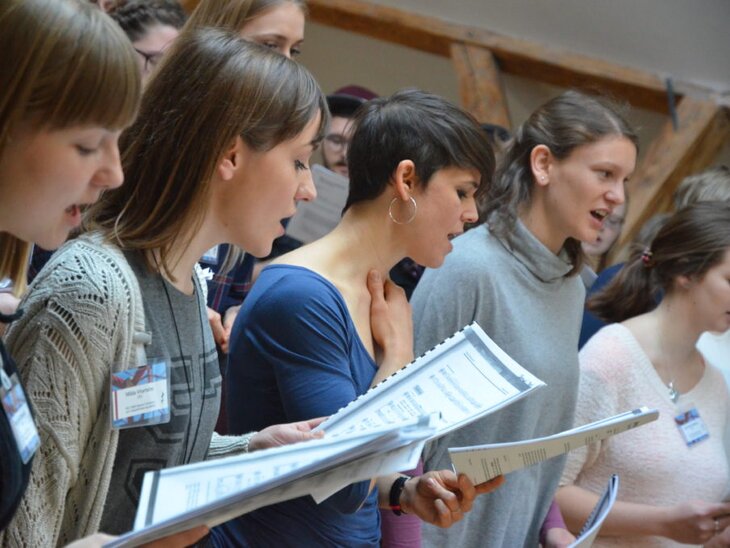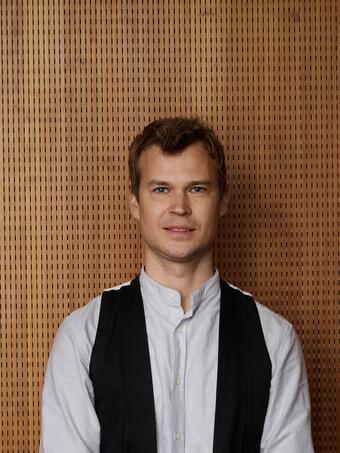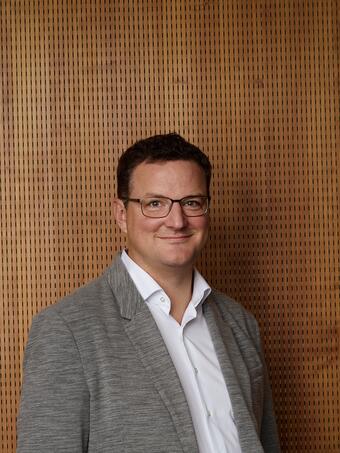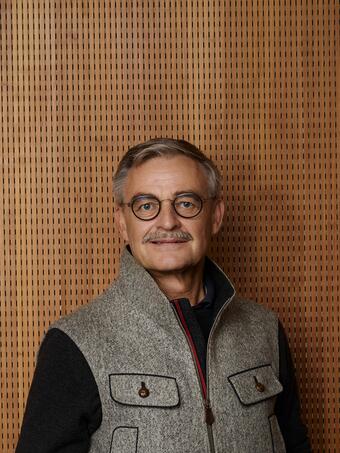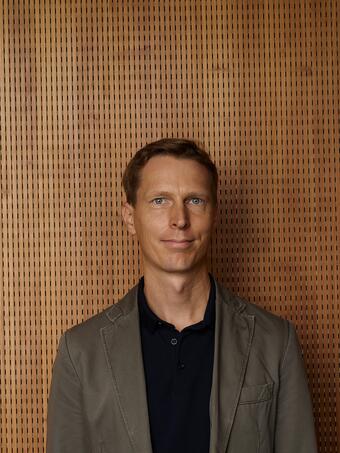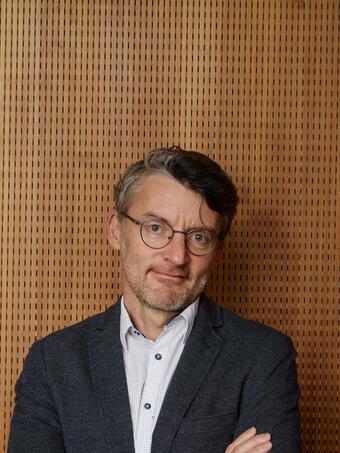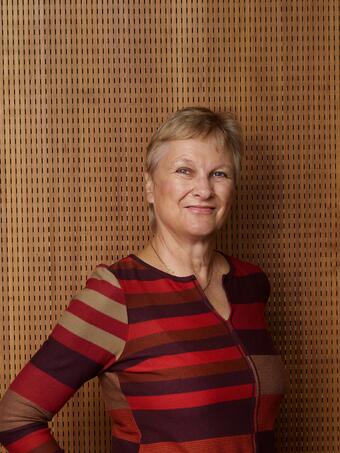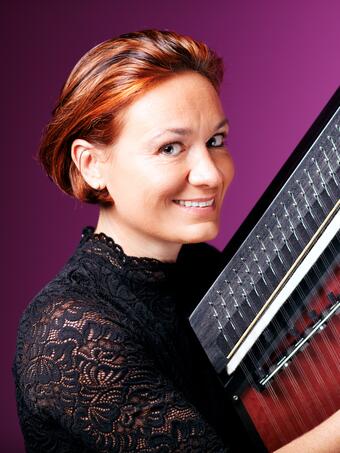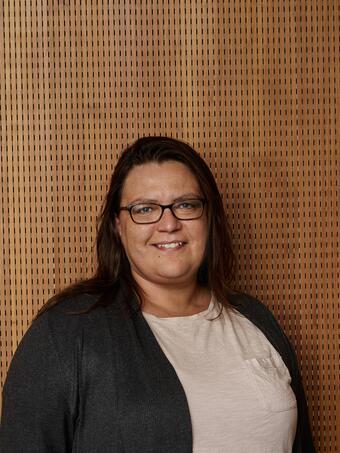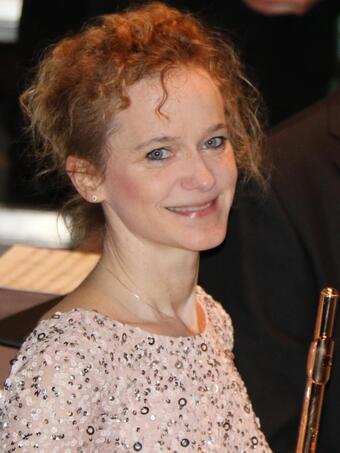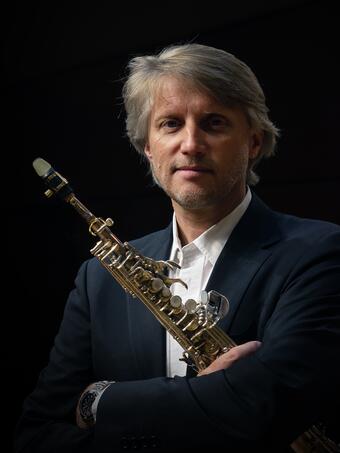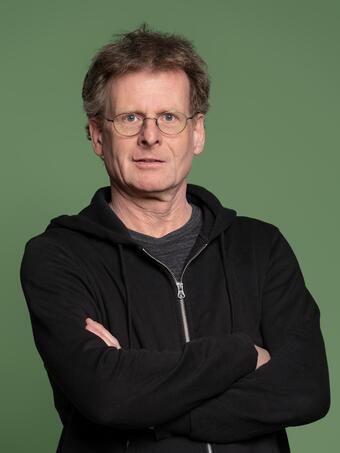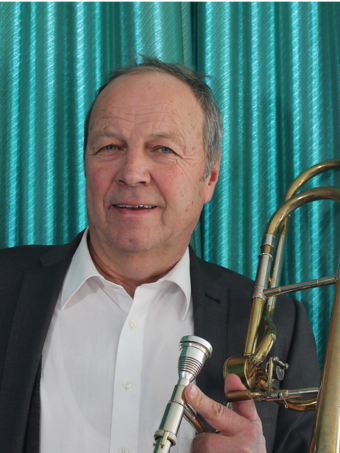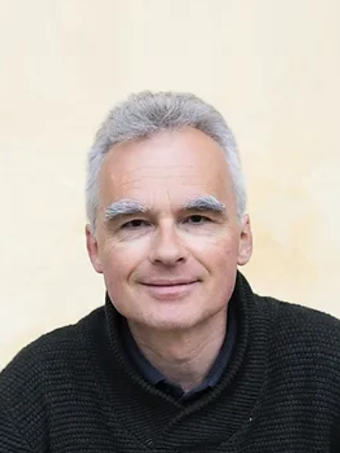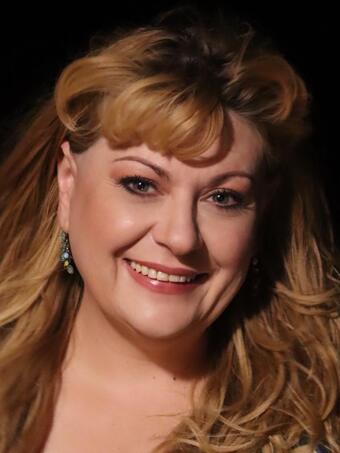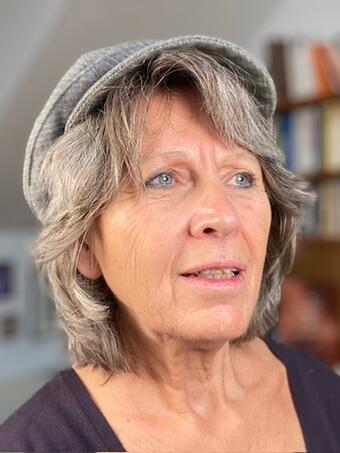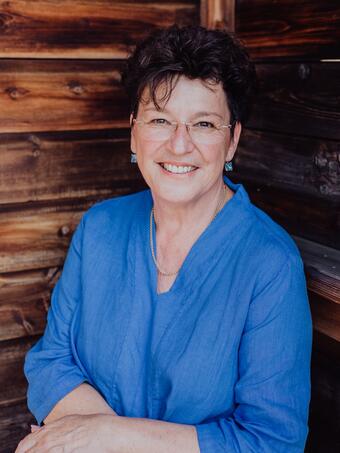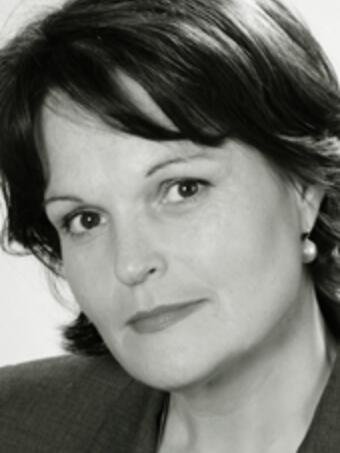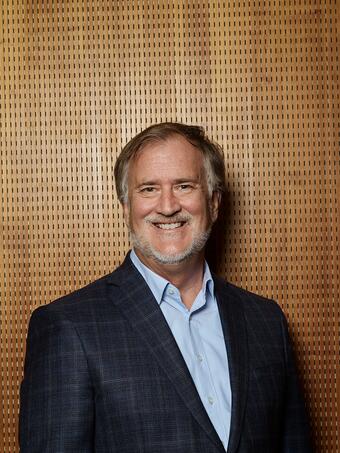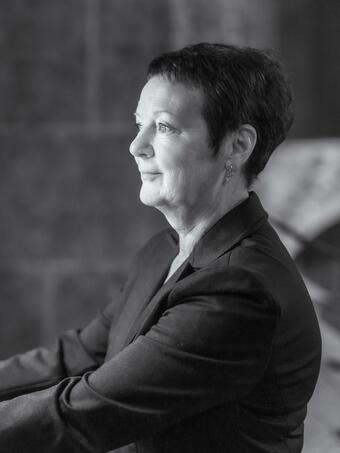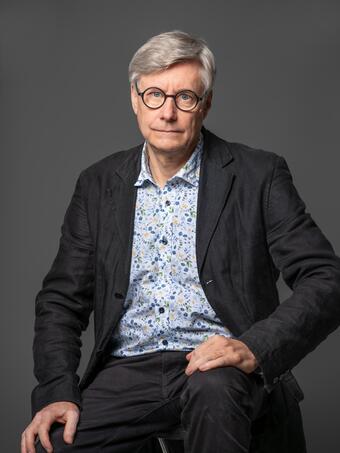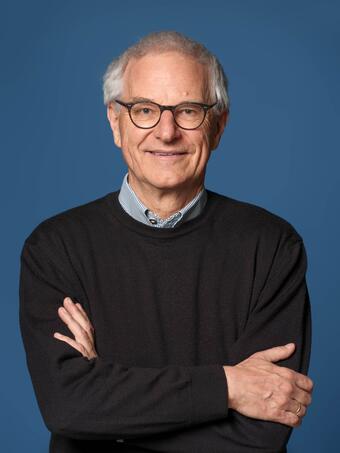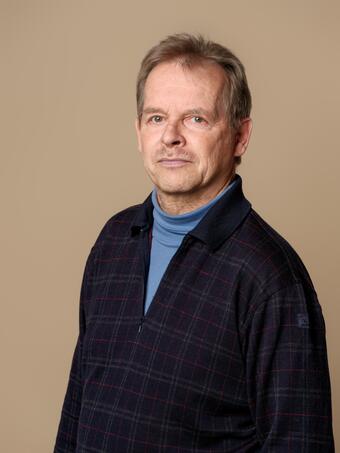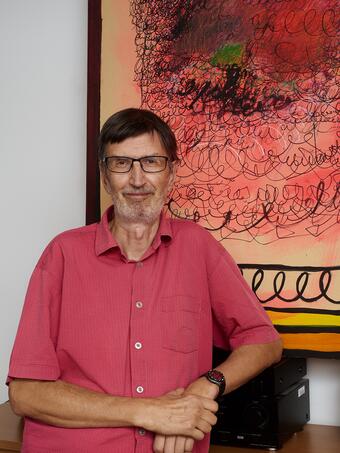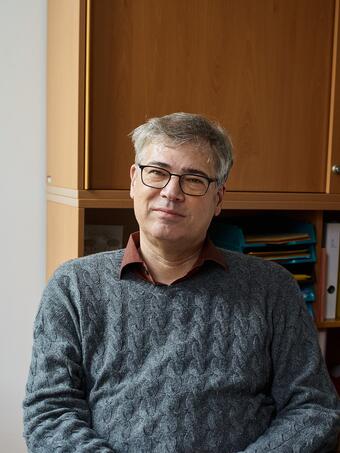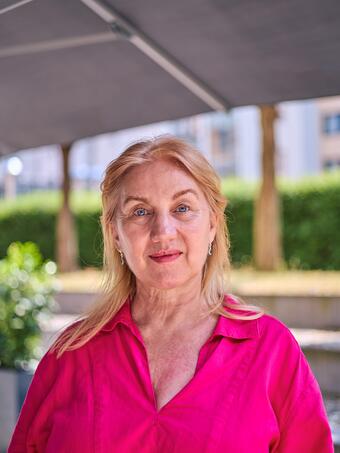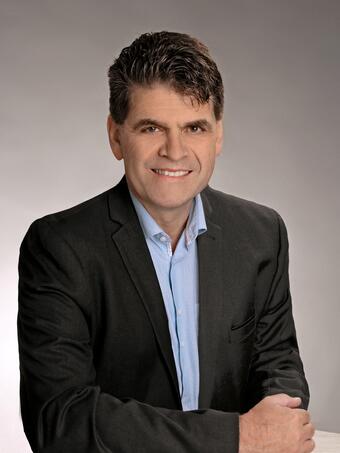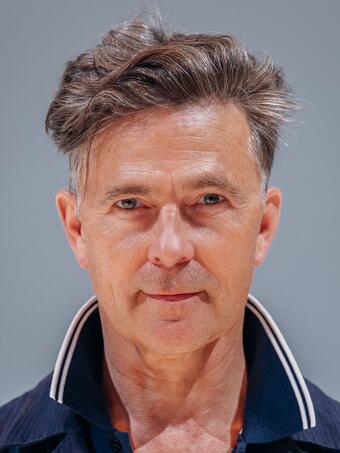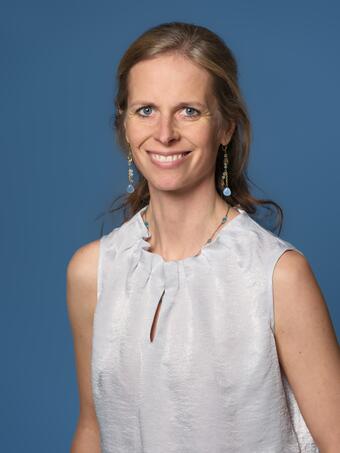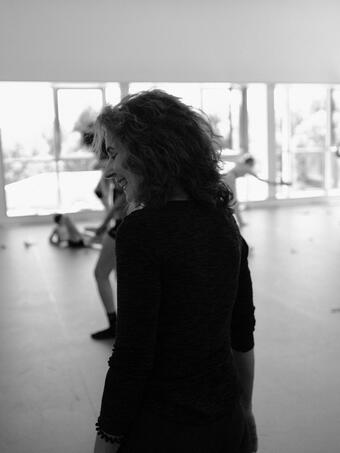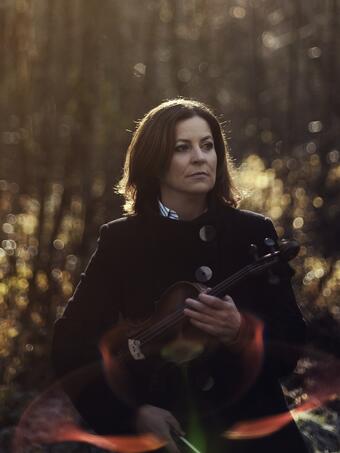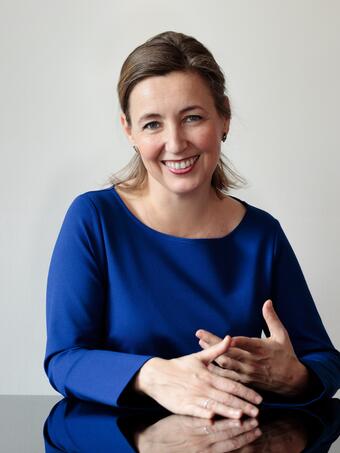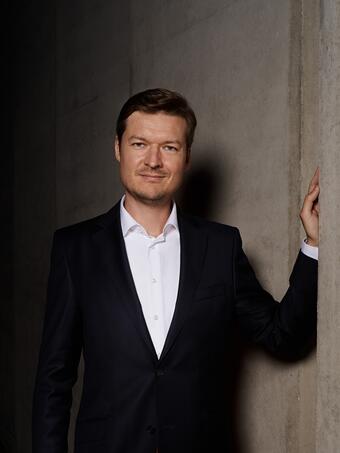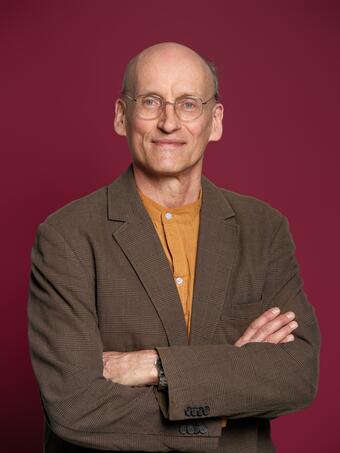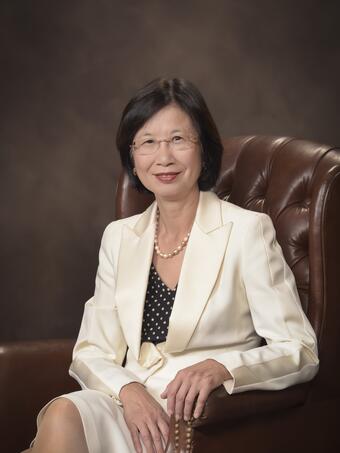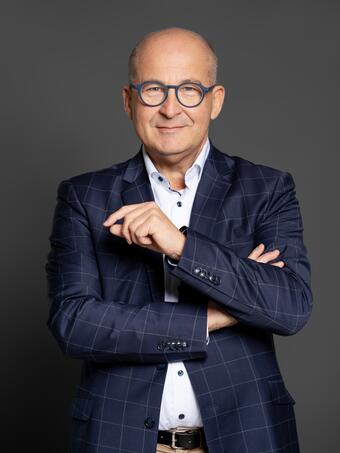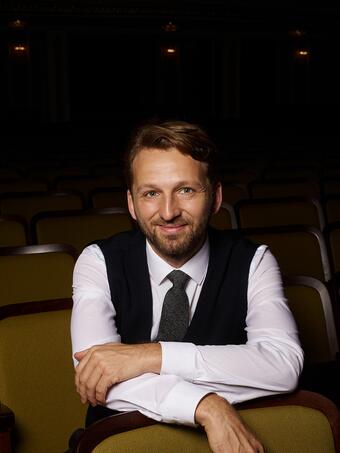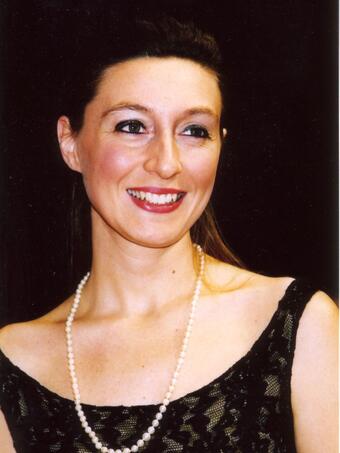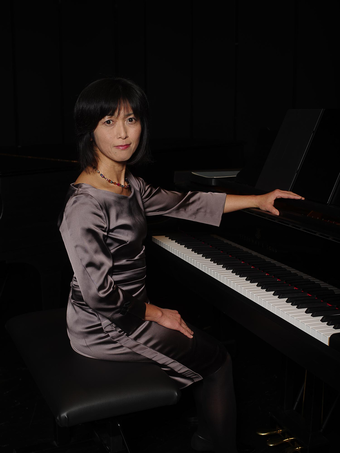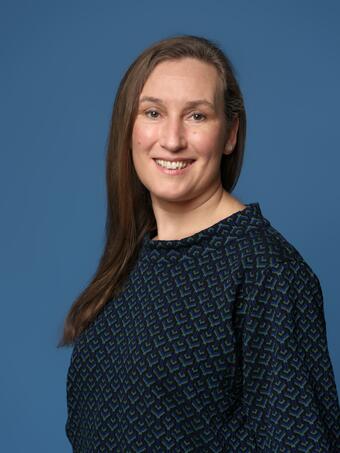Teacher Training for Music Education
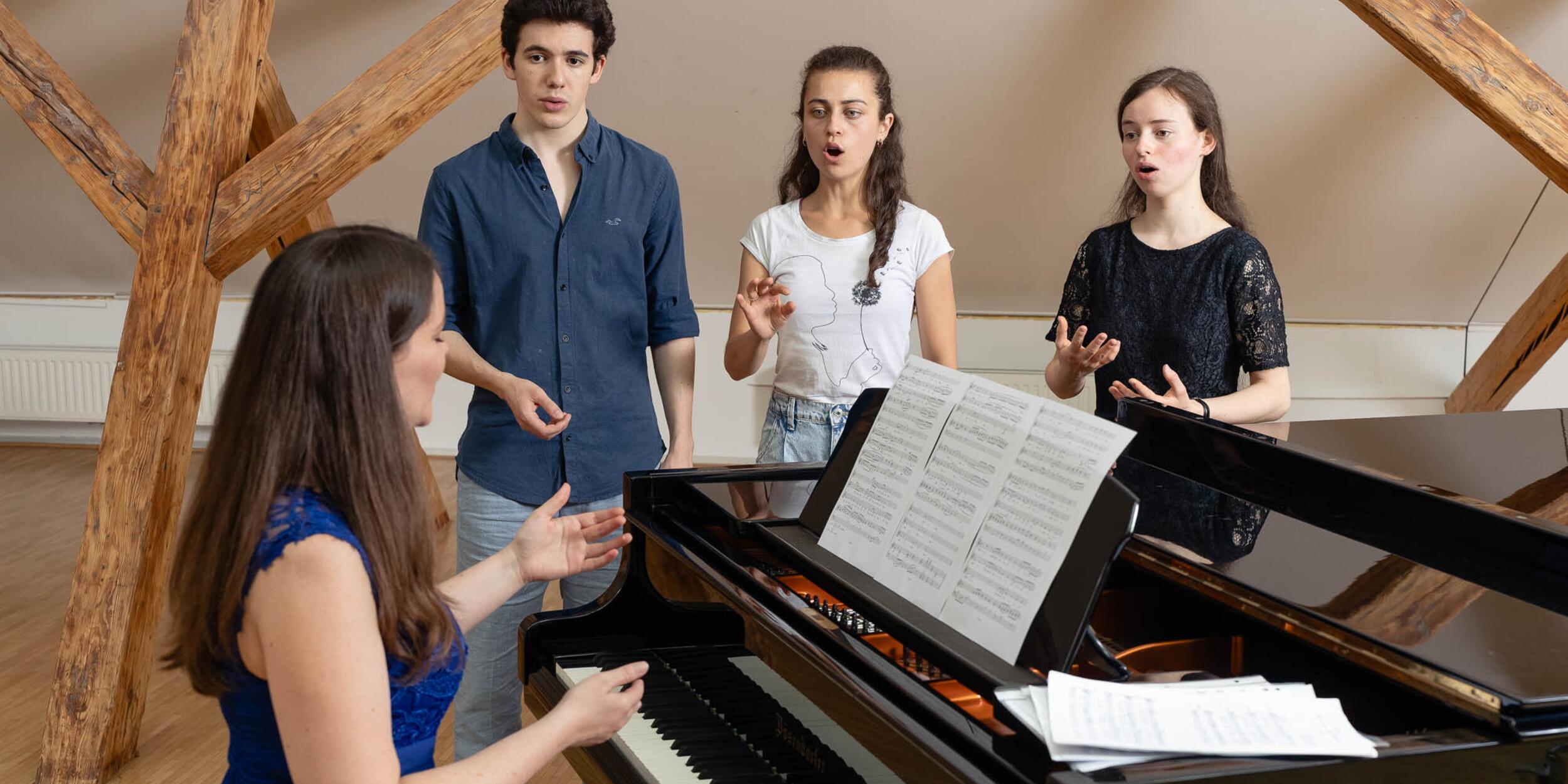
Overview
The bachelor's degree programme in music education provides basic training across the broad spectrum of subjects and skills required for classroom music teaching. In addition to completing courses in didactics, pedagogy and education sciences, students will receive an all-round musical education in practical musicianship, music theory and musicology. They will also complete practical teaching placements as they prepare to enter the teaching profession; this programme qualifies students to teach in grades 5-8 of the Austrian education system and to embark upon the MA programme required to become a fully qualified secondary school teacher.
Department of Studies & Examinations
+43 676 88122 492
studienabteilung@moz.ac.at
Length of Course
8 semesters / 240 ECTS-AP
Language
German
Application period
1.2.–28.3.2025
Admission examinations
Summer semester of each year
to the dates
Downloads
Information Events
-
20.3.202508:30 amUniversität MozarteumOpen House: Music Education SalzburgInformation sessions, presentations, small performances, exhibitions & classroom visitsOpen Days· Free
-
11.4.—12.4.2025Music theory workshopThis workshop weekend offers an ideal supplement to your own preparation. In a group rotation principle, all important areas of the licensing exam are taken with a focus on ear training and tone setting.Workshop· Free entry (Opens in new tab)
-
23.5.202501:00 pmOnlineCheck Up Piano & Check Up Voicewith Gereon Kleiner (piano in IGP / ME / IME for major or compulsory subject) & Regina Prasser (voice in IGP / ME / IME for major or compulsory subject). An audition will be organised in one or both subjects as a final check-up before the entrance exam.Info event· Free entry (Opens in new tab)
-
4.6.202506:00 pmOnlineMusic theory Q&A sessionYou can ask your individual questions about the procedure and content of the entrance examination in music theory and aural training. Online registration: https://bit.ly/MusiktheorieFragestunde2025Info event· Free entry (Opens in new tab)
-
18.6.202506:00 pmOnlineMusic theory Q&A sessionYou can ask your individual questions about the procedure and content of the entrance examination in music theory and aural training. Online registration: https://bit.ly/MusiktheorieFragestunde2025Info event· Free entry (Opens in new tab)
Career paths
The teacher training programme for secondary education consists of a Bachelor's and a Master's programme and trains students to become teachers in their chosen subjects.
The Bachelor's degree programme in Secondary Education is designed to be completed within 8 semesters. Two teaching subjects must be chosen, in addition to which students are required to complete free elective subjects, a general grounding in educational science, and integrated teaching placements. The subject Music Education can be combined with any other teaching subject.
Students receive individual tuition from first-class teachers on their chosen instruments and can develop both artistically and in the area of pedagogy. Alongside artistic and music theory training, a focus is placed on the subject of music in school from the very beginning. The courses in didactics introduce methods and concepts for teaching music and also cover such areas as listening education, digital media and practical music making in the classroom.
This degree course is orientated around current developments and performance practice in the arts, as well as the latest, most up-to-date research in the academic disciplines involved. It refers to the curricula of secondary schools and the general and holistic educational goals contained therein.
Special features at the Salzburg campus:
- Students who choose Salzburg will experience a first-class musical education at a world-renowned arts university with an international atmosphere.
- The cooperation between the Mozarteum University, the University of Salzburg and Salzburg Teacher Training College enables a comprehensive education in music pedagogy
- The Mozarteum University is the only arts university in Austria at which programmes in all academic art disciplines are offered: Music, Fine Arts, Performing Arts and Dance. Students who base themselves in Salzburg will benefit from a wide range of cooperation and exchange opportunities.
General course information
The teacher training programme at secondary level is carried out in cooperation with the following partner institutions (Central Region Partnership):
Salzburg location
- Paris Lodron University Salzburg (PLUS)
- Salzburg University of Teacher Training (PHS)
- Edith Stein University of Teacher Training (KPH)
- Mozarteum University Salzburg (MOZ)
Location Linz
- Johannes Kepler University Linz (JKU)
- University College of Teacher Education Upper Austria (PH OÖ)
- Private University College of Education of the Diocese of Linz (PHDL)
- Linz University of Arts (UFG)
- Anton Bruckner Private University (ABPU)
- Catholic Private University Linz (KU Linz)
Applicants should ...
- enjoy making music
- want to develop musically and be diligent in practising
- enjoy musical work with children and young people
- be enthusiastic in their involvement with music
The aim of the Bachelor's degree programme is to prepare students for a career in secondary school teaching. A full teaching qualification can be obtained by consecutive enrolment in the corresponding Master's programme. However, the Bachelor's programme alone also opens up further professional fields, such as extracurricular youth education, adult education, cultural and media work, etc.
The study programme should also contribute to the students' personality development and the development of social competences. After completing the BA teaching degree in the subject Music Education, students should:
- experience and recognise music as a sound phenomenon subject to certain laws and as a medium of expression anchored in a historical and socio-cultural context
- have at their disposal a variety of artistic means of expression (instrumental, vocal, using movement)
- possess knowledge and skills in the fields of music education, musicology, music theory and musical practice and be able to make connections between the different sub-disciplines
- be able to work on academic questions concerning music education and music-related disciplines within the framework of scholarly work under appropriate guidance using the corresponding research methods
- be able to present music in its wide range of applications, at least in outline (as a soloist and in an ensemble), and to make it usable for teaching purposes
- be able to guide others to express themselves musically.
The breadth of the curriculum should enable future teachers to make music accessible to a wide ranger of learners in both production and reception. The full teaching degree programme (BA + MA) qualifies students to teach at:
- Middle schools
- Grammar schools (grades 5-12)
Students have the choice of the following instruments as their artistic major:
- Bassoon
- Clarinet
- Diatonic accordion
- Double bass
- Dulcimer
- Flute
- Guitar
- Harp
- Horn
- Oboe
- Organ
- Percussion instruments
- Piano
- Recorder
- Saxophone
- Trombone
- Trumpet
- Tuba
- Viola
- Violin
- Violoncello
- Zither
Alternatively, one of the following artistic majors can be chosen:
- Choral Conducting
- Ensemble Conducting Vocal/Instrumental (Linz only)
- Ensemble Performance and Ensemble Conducting (Salzburg only)
- Voice
- Popular Music
- Dance
For admission to the Bachelor's programme, various certificates and examinations are required:
- general university entrance qualification (e.g. Matura, Abitur, high school diploma)
- command of the German language (at least level B2 - Common European Framework of Reference CEFR 2001)
- positive participation in the general admission procedure for the teacher training programme in the Central Region
- passing an entrance examination to determine artistic and pedagogical competence
As part of the Bachelor's degree programme in Music Education, piano and voice as well as an artistic major (see above) must be studied. All instruments offered at the location as well as voice, dance and choral conducting can be chosen as artistic majors. If piano or voice is chosen as an artistic major, a third instrument is not required. Candidates must indicate their choice of artistic major when registering for the entrance examination.
The teaching subject Music Education is to be combined with a second subject. The combination with the teaching subject Instrumental Music Education at the Mozarteum University is possible; for admission to the Instrumental Music Education programme, a separate audition proving artistic aptitude in two instruments must be passed.
The General Admissions Procedure for all teaching degress (regardless of subject) consists of several steps:
- Registration and pre-registration (usually early March to mid-August).
- Participation in the online self-assessment (= Module A)
- Payment of the fee
- Registration for the Electronic Admission Test (several dates to choose from)
- Participation in the Electronic Admission Test (= Module B)
Please check the Central Region Partnership website for exact dates and procedures.
1. Create a basic account in MOZonline
2. Once in the MOZonline account: fill in the mandatory statistics UHstat1 (pre-registration for studies) and make a note of the application number that is sent by email upon submission of this information.
3. Create an application account in Muvac
4. (minimum requirements: personal data, information on expertise matching the desired degree programme, in the CV: current employment and information on previous training)
During the application period:
5. Select your desired degree programme in Muvac (Browse -> Studies)
6. Fill out the application form in Muvac ("Apply now"), being sure to enter your application number (see step 2) or Austrian matriculation number in the appropriate field
Detailed instructions with screenshots can soon be found HERE.
Please take a look at the FAQs about registration in Muvac if you get stuck at any of the steps.
Communication during the application process takes place via Muvac or email, depending on the degree programme. Please ensure that you can be contacted at the email address entered in your profile throughout the entire application process and regularly check whether you have received any new messages in Muvac. You can set your own profile to inform you of any new messages in Muvac by email (Account settings -> Notifications). If your contact details change, please update your profile yourself.
- Online registration during the general admission procedure to teaching degrees: registration and completion of the general admissions procedure
- Online registration during the application period via the application portal Muvac (Please note: Registration is only possible if all required information and documents have been submitted!)
- Once the online application has been processed: invitation to on-site audition. The invitation will be sent via Muvac.
- The invitation to the on-site entrance examination must be accepted or rejected in Muvac. Details to the audition programme in the principal study should also be given, if required for the respective instrument).
- Participation in the on-site audition
- Upon passing the audition and being offered a place: invitation to enrol in the degree programme
- Enrolment (in person) during the general admission period
Registration for the entrance examination takes place via the application portal Muvac - for information, see 'Registration for the entrance examination' (above).
Link to the registration deadlines
Link to the examination dates
Candidates may only register at one location, either Central Region (for Salzburg and Linz) or Western Region (for Innsbruck). Multiple registrations at different locations are not permitted and will be cancelled.
When registering in the Central Region, candidates must specify their preferred location (Salzburg or Linz) in the application in the above-mentioned registration portal.
Documents required for online registration
- Curriculum vitae in tabular form with photo
- Letter of motivation (approx. one DIN A4 page)
- School leaving certificate (e.g. Matura, Abitur, A Levels...) or last school report
- (final) certificates as well as examinations and transcripts of records of all previous artistic and/or pedagogical studies
- Proof of German language proficiency, if applicable
Form of the documents
- The documents can be uploaded as PDF in the application form.
- If the documents mentioned are not available in German or English, an official translation must also be submitted.
The entrance examination
Partial examinations must be taken in the following areas:
- Artistic major
- Compulsory subject piano (if not artistic major)
- Singing for music teachers (if not artistic major)
- Aural skills (sight singing)
- General musical ability (music theory and aural skills)
- Participation in a musical-communicative project
- Mastery of the German language (at least level B2) for all students whose first language is not German.
The examination requirements are regulated in the guidelines; information on the German language certificates accepted can be found HERE.
Material to prepare for the Music Theory and Aural Skills examination can be found HERE.
The various partial examinations listed above all take place within the entrance examination period for teaching degrees in music and instrumental music, with the exception of some auditions in the Artistic Major, which are held during the same session as the auditions for performance studies, depending on the instrument. Candidates are advised to check the examination dates to establish whether this applies to them.
Any questions?
You can find more information about starting your studies here:
